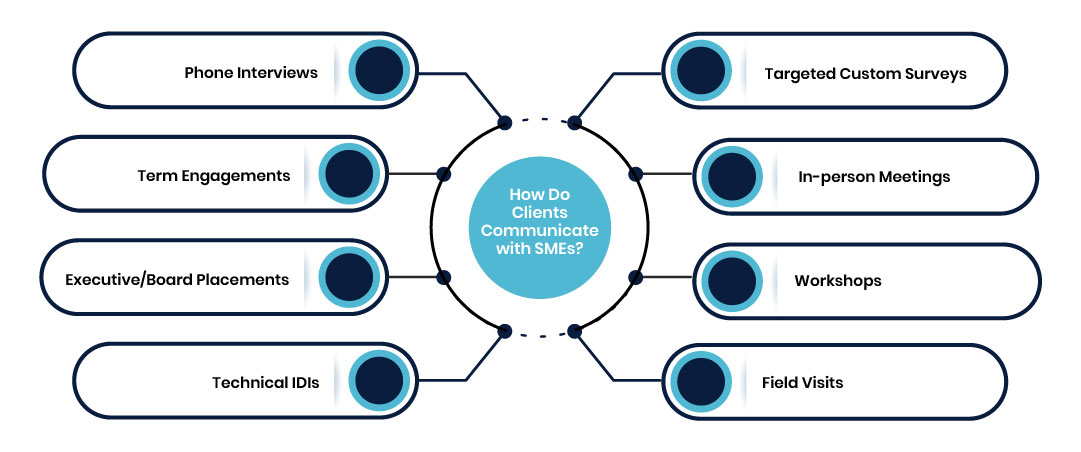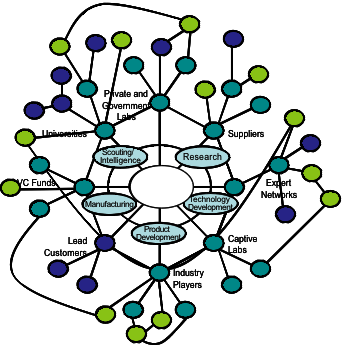How Do Expert Networks Work?
When it comes to understanding how expert networks work, curiosity is a great starting point! So, let’s dive in and explore what expert networks are all about.
Expert networks offer a platform that connects professionals with those seeking their insights and expertise. Sounds cool, right? It’s like having a direct line to experts in various fields, sharing their knowledge and experience.
So, how does it work? Well, imagine you have a burning question about a particular industry or topic. Expert networks match you with a qualified expert who can provide you with the information you’re seeking. It’s like having a personal guide to navigate the complexities of a particular subject.
Now that we’ve got your curiosity piqued, let’s dig deeper into the fascinating world of expert networks and how they can benefit both those seeking knowledge and those eager to share it. So, buckle up and get ready to explore this exciting realm!

How do Expert Networks work?
Expert networks have become an essential tool for professionals looking for specialized knowledge and insights. These networks connect industry experts with individuals or companies seeking their expertise. Through a combination of technology and human resources, expert networks facilitate the exchange of information, enabling clients to tap into the knowledge of experienced professionals across various industries. In this article, we will delve into the inner workings of expert networks and explore the benefits they offer to their clients.
1. The Role of Expert Networks
Expert networks act as intermediaries between clients and subject matter experts, bridging the gap between information seekers and knowledgeable professionals. The primary role of these networks is to identify, verify, and connect the right experts with the right clients. Experts registered with these networks undergo a rigorous vetting process to ensure their qualifications and expertise. Once approved, they become a part of the network’s database, and clients can contact them for consultations, research projects, or industry insights.
Expert networks offer a range of services, including one-on-one consultations, expert-led research projects, and access to their extensive knowledge databases. Through these services, clients gain valuable insights, industry trends, and a deep understanding of various sectors. The goal is to provide accurate, reliable, and up-to-date information to clients, enabling them to make informed decisions and gain a competitive edge in their respective fields.
2. How Expert Networks Connect Clients with Experts
When a client approaches an expert network, they outline their specific needs, such as the industry they operate in, the type of expertise required, and the scope of the project. The expert network, armed with this information, sifts through its database to find the most relevant experts who match the client’s requirements. These experts are then contacted and given an opportunity to participate in the project or consultation.
Expert networks utilize various methods to facilitate these connections. Some networks have online platforms where clients can search for experts based on specific criteria, such as industry, location, or years of experience. Other networks have dedicated account managers who handle the matchmaking process, ensuring that the client is connected with the most suitable expert for their needs.
3. Benefits of Using Expert Networks
Expert networks offer numerous benefits to clients, making them an indispensable resource for professionals across industries. One of the primary advantages is access to specialized knowledge and insights. Clients can tap into the expertise of professionals who possess years of experience and firsthand industry knowledge. This allows them to gain a deeper understanding of complex topics, identify emerging trends, and make well-informed decisions.
Another benefit is the speed and efficiency with which clients can access experts. Expert networks have streamlined the process of connecting with industry professionals, eliminating the need for extensive research and networking. Clients can simply provide their requirements to the expert network, and the network takes care of the rest, presenting them with a curated list of experts who meet their criteria.
Furthermore, expert networks provide a cost-effective solution for accessing specialized knowledge. Instead of hiring full-time experts or consultants, clients can engage with experts on an as-needed basis, reducing costs without compromising on the quality of insights received. Additionally, expert networks ensure confidentiality and can facilitate non-disclosure agreements, allowing clients to freely discuss sensitive topics with trusted professionals.
Benefits and Drawbacks of Using Expert Networks
1. Benefits of Using Expert Networks
Expert networks offer numerous benefits to clients, making them an invaluable resource for anyone in need of specialized knowledge and insights. Some of the key advantages include:
1. Access to Expertise: Expert networks connect clients with experienced professionals, offering access to industry-specific knowledge and insights.
2. Time and Cost Efficiency: Engaging with expert networks saves time and cost, as clients don’t have to conduct extensive research or hire full-time experts.
3. Confidentiality: Expert networks provide a secure environment and can facilitate non-disclosure agreements, ensuring that sensitive information remains confidential.
4. Flexibility: Clients can engage with experts on-demand, allowing them to access specialized knowledge when needed, without the long-term commitment.
5. Wide Range of Expertise: Expert networks have experts from various industries and fields, providing a diverse range of expertise to choose from.
2. Drawbacks of Using Expert Networks
While expert networks offer many benefits, there are some drawbacks that clients should be aware of:
1. Cost: Expert networks charge fees for their services, which may be a deterrent for smaller businesses with limited budgets.
2. Limited Availability: Depending on the industry or niche, finding specific experts through expert networks may be challenging, as not all professionals may be registered with these networks.
3. Reliance on Third-Party Platforms: Clients are dependent on the expert network’s platform for communication and coordination, which may result in limited control over the process.
4. Quality Assurance: While expert networks have vetting processes in place, there is still a risk of encountering experts who may not meet expectations or provide accurate information. Clients should carefully evaluate potential experts and review their credentials and track records.
Tips for Maximizing the Benefits of Expert Networks
1. Clearly Define Needs and Objectives
Before engaging with an expert network, it is crucial to clearly articulate your needs and objectives. Clearly define what industry or topic you need expertise in and outline the specific questions or challenges you are facing. This will help the expert network connect you with the most suitable experts and ensure that your goals are met.
2. Communicate Expectations and Deadlines
Effective communication is key to a successful engagement with an expert network. Clearly communicate your expectations, including the level and depth of expertise required, the timeline for the project, and any specific deliverables. This will help the experts understand what is expected of them and ensure a smooth collaboration.
3. Leverage the Expertise Beyond the Engagement
Expert networks provide valuable insights and knowledge, but their benefits can extend beyond a single engagement. Take the opportunity to learn from the experts and ask questions that can help you build your own expertise in the long run. This will maximize the value you derive from the engagement and empower you with new knowledge and perspectives.
In summary, expert networks are a valuable resource for acquiring specialized knowledge and insights. By connecting clients with experienced professionals, expert networks facilitate the exchange of information, enabling clients to make informed decisions and gain a competitive edge in their respective industries. With careful planning, clear communication, and a thoughtful approach, clients can leverage expert networks to maximize the benefits and achieve their goals.
Key Takeaways: How do Expert Networks work?
- Expert Networks connect professionals seeking knowledge with experts who possess specialized knowledge in a particular field.
- Users can access expert insights through phone consultations, webinars, or written reports.
- Experts are carefully vetted to ensure their credibility and expertise.
- Expert Networks offer a convenient and efficient way to access expert advice and stay updated in various industries.
- By tapping into Expert Networks, individuals and businesses can make informed decisions and gain a competitive edge.
Frequently Asked Questions
Here are some common questions about how expert networks work:
1. How do expert networks connect professionals with those seeking expertise?
Expert networks act as intermediaries between professionals with specialized knowledge and those who need their insights. They have a vast network of experts spanning various industries and domains. When someone seeks expertise on a specific topic, the expert network matches them with the most suitable professionals. This connection is typically facilitated through a platform where users can request consultations or ask questions.
Expert networks employ various strategies to identify and verify experts, ensuring they possess the necessary qualifications and experience. They also provide tools and platforms to facilitate communication and collaboration, enabling seamless knowledge exchange between experts and those seeking their insights.
2. What are the benefits of using expert networks?
Expert networks offer numerous benefits to both experts and those seeking their expertise. For experts, these networks provide opportunities to monetize their knowledge and skills by offering consultations or participating in research projects. It allows them to expand their professional network, gain exposure to different industries, and enhance their reputation as thought leaders in their respective fields.
For individuals or organizations seeking expertise, expert networks offer access to highly specialized professionals who can provide valuable insights and guidance. These networks save time and effort by connecting them directly with experts, eliminating the need for extensive research or relying solely on internal resources. Additionally, expert networks ensure confidentiality and often offer a guarantee of quality by vetting the experts they work with.
3. How are consultations with experts conducted through expert networks?
Consultations with experts through expert networks can be conducted in various ways, depending on the preferences of both parties. Some networks offer video or audio conferencing features, allowing users to have real-time conversations with experts from anywhere in the world. Others provide messaging or email-based systems that allow participants to communicate asynchronously.
During a consultation, users can discuss their specific questions or challenges with the expert, seeking their insights, recommendations, or guidance. The duration of consultations can range from a few minutes to several hours, depending on the complexity and depth of the topic being discussed. Some expert networks also offer the option to schedule longer-term engagements with experts for ongoing support or in-depth projects.
4. How do expert networks ensure the quality of their experts?
Expert networks employ rigorous screening and vetting processes to ensure the quality of the experts in their network. They often verify the educational background, professional experience, and credentials of potential experts, ensuring they possess the necessary expertise and knowledge in their respective domains. Some networks also conduct interviews or reference checks to further assess the experts’ abilities and skills.
Additionally, expert networks may gather feedback and ratings from clients who have previously engaged with the experts. This feedback serves as a measure of their performance and helps ensure a high standard of quality. Expert networks continuously monitor the satisfaction and feedback from users, allowing them to constantly improve and refine their network of experts.
5. Are expert networks limited to specific industries or domains?
No, expert networks cover a wide range of industries and domains, catering to diverse areas of expertise. Whether it’s finance, healthcare, technology, marketing, or any other field, there is likely an expert network that specializes in connecting professionals from that specific industry. Some expert networks even have global reach, connecting experts from various countries and cultures.
Expert networks understand the importance of accessing expertise across different domains, as many challenges and problems often require interdisciplinary perspectives. They actively seek to expand their network of experts to cover a broad spectrum of knowledge and provide comprehensive solutions to their users.
The Basics of Expert Networks
Summary
So, to sum it up, expert networks are a way for people with questions to connect with experts who have the answers. These networks match those seeking advice with knowledgeable professionals who can provide valuable insights. By leveraging technology, expert networks make it easier for individuals and businesses to access the expertise they need, quickly and efficiently.
In these networks, experts are carefully selected and vetted to ensure their knowledge and expertise. When a client has a question, they submit it to the network, and the network finds the right expert to answer it. This way, anyone can tap into a vast pool of knowledge and get reliable and accurate information. Expert networks are changing the way people find and share information, making expertise accessible to all.


